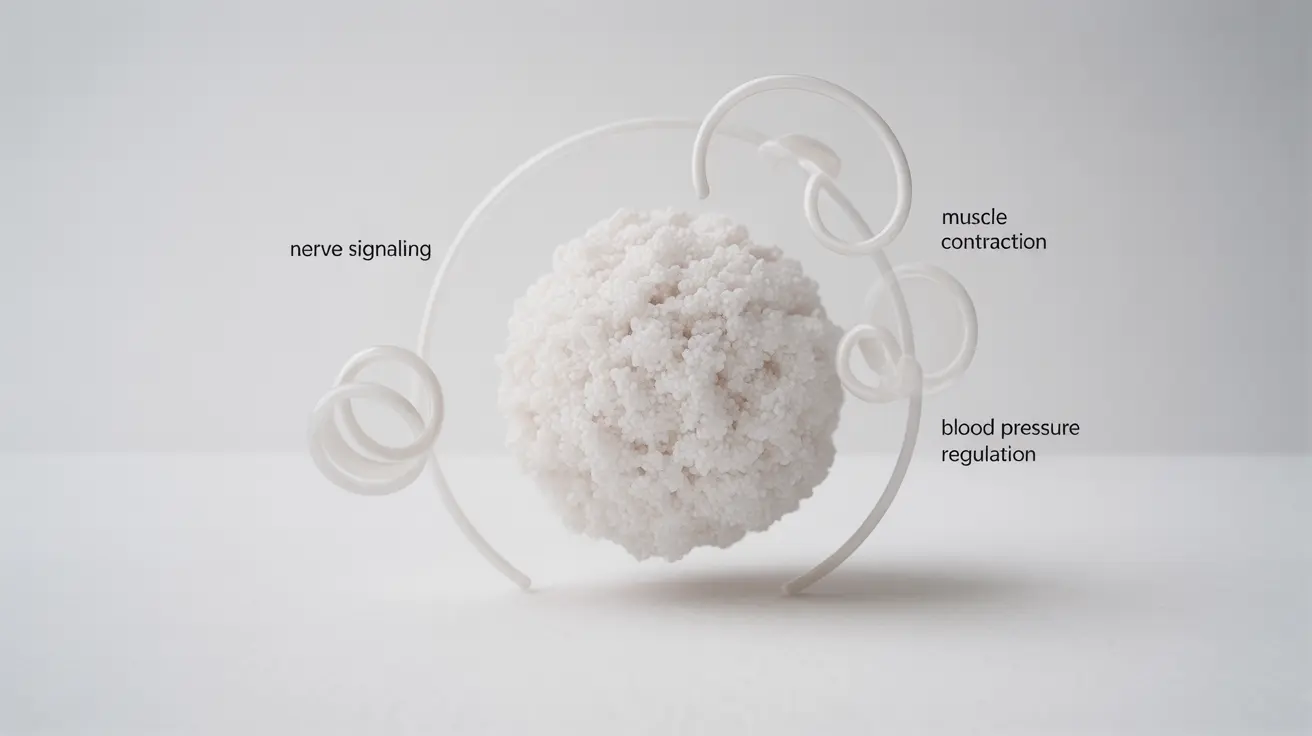Salt has been a crucial part of human nutrition for thousands of years, yet its role in our health remains a topic of ongoing debate. While some warn against its dangers, others emphasize its vital importance for bodily functions. Understanding the balance between beneficial and harmful effects of salt is essential for making informed dietary choices.
This comprehensive guide explores the complex relationship between salt and health, helping you understand how much salt you really need and when it might become a concern. We'll examine both the benefits and risks, backed by current scientific understanding.
The Essential Role of Salt in Your Body
Salt, primarily composed of sodium and chloride, plays several vital functions in human health. Your body needs sodium to:
- Maintain proper nerve function and muscle contractions
- Balance body fluids
- Support proper digestion
- Regulate blood pressure
- Enable nutrient absorption
Without adequate salt intake, these crucial bodily functions could be compromised, leading to potential health issues.
Finding the Right Balance: How Much Salt Do You Need?
The recommended daily salt intake varies depending on age, health status, and activity level. For most adults, the American Heart Association recommends:
- Ideal limit: 1,500 mg of sodium per day
- Maximum limit: 2,300 mg of sodium per day
- Current average American intake: 3,400 mg per day
Athletes, people who work in hot conditions, or those with certain medical conditions may need different amounts. Always consult with a healthcare provider for personalized recommendations.
The Risks of Excessive Salt Consumption
Consuming too much salt can lead to several health complications:
- High blood pressure
- Increased risk of heart disease and stroke
- Kidney problems
- Water retention
- Calcium loss from bones
These risks are particularly significant for people who are salt-sensitive or have existing health conditions like hypertension.
When Salt Intake Is Too Low
While high salt intake often gets attention, consuming too little salt can also be problematic. Symptoms of insufficient sodium can include:
- Headache
- Muscle cramps
- Fatigue
- Nausea
- Confusion
- In severe cases, seizures
People following extremely low-sodium diets should monitor their health carefully and work with healthcare providers to maintain appropriate levels.
Strategies for Healthy Salt Consumption
To maintain healthy salt levels:
- Read nutrition labels carefully
- Cook meals at home to control salt content
- Use herbs and spices for flavor instead of salt
- Choose fresh foods over processed options
- Stay hydrated to help your body maintain proper sodium balance
Frequently Asked Questions
Is salt good for you or harmful to your health?
Salt is both essential and potentially harmful, depending on the amount consumed. It's vital for basic bodily functions but can cause health problems when consumed in excess. The key is moderation and staying within recommended guidelines.
How much salt should I eat daily to stay healthy?
Most adults should aim for 1,500-2,300 mg of sodium per day. However, individual needs vary based on factors like age, health conditions, and activity level. Consult your healthcare provider for personalized recommendations.
What are the health risks of eating too much salt?
Excessive salt intake can lead to high blood pressure, increased risk of heart disease and stroke, kidney problems, and fluid retention. Long-term overconsumption may also affect bone health by increasing calcium excretion.
Can eating too little salt be bad for my body?
Yes, insufficient salt intake can cause problems including headaches, muscle cramps, fatigue, and in severe cases, more serious complications. The body needs some salt to function properly, so extremely low-sodium diets can be dangerous without medical supervision.
How does salt affect blood pressure and heart disease risk?
Salt can increase blood pressure by causing the body to retain more water, putting additional pressure on blood vessel walls. Higher blood pressure is a major risk factor for heart disease and stroke. However, individual responses to salt intake vary, with some people being more salt-sensitive than others.




